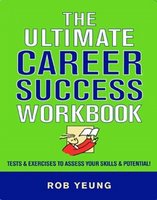Meetings, meetings, everywhere
 I've written about meetings before. But I just read a survey in which 91 percent of employees confessed to having daydreamed in meetings. I think that's quite funny, but I can hardly say that I’m surprised - and I can personally confess to having taken other work into meetings as well as having fallen asleep in them too!
I've written about meetings before. But I just read a survey in which 91 percent of employees confessed to having daydreamed in meetings. I think that's quite funny, but I can hardly say that I’m surprised - and I can personally confess to having taken other work into meetings as well as having fallen asleep in them too!
Here are some tips for handling meetings effectively:
- Work out an agenda. Whether you were asked to lead the meeting or not, remember that meetings are an opportunity for you to show others how good you are. If someone else is leading the meeting and loses their way, you can speak up and get the meeting back on track.
- Use the clock to keep people on track. Refer to the time as a way of hurrying people through the meeting if they dawdle unnecessarily. Once you have asked when people need to leave the meeting, you can make comments such as: “I’m conscious that we’ve only got another 15 minutes before Alex and Chris need to get away. Can I suggest we move on to discussing…”
- Build on previous comments. Keep your contributions brief and try to add to build on the points of people who have already spoken. Don’t speak simply for the sake of speaking, but do speak up if you have a relevant point that has not already been raised.
- Ask questions instead of being negative. Passing judgement on whether you think an idea is good or not is poor meeting etiquette. Saying “that won’t work” effectively implies that you know better than anyone else in the room. Instead of pointing out a problem, acknowledge the possibility and ask a question that invites others to seek a solution. For example, rather than pointing out that the team does not have the budget to do a project, ask: “That’s a great idea. How could we get the funding together for that?”













